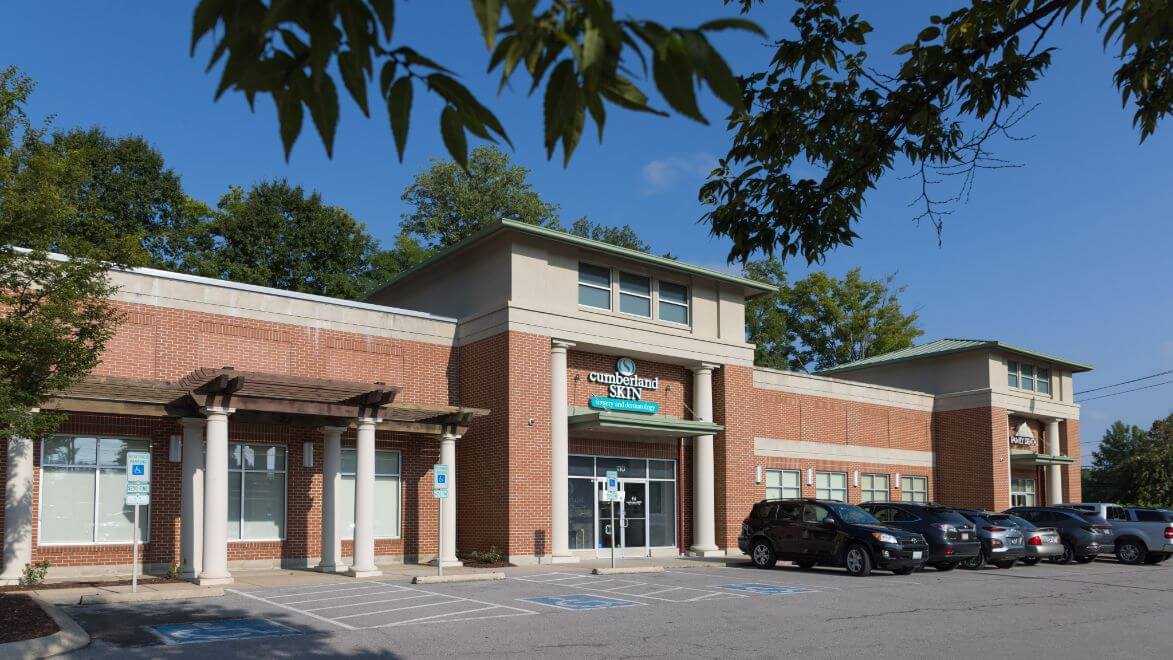Skin Cancer
Skin Cancer: The Most Common Cancer Worldwide
Skin cancer is the most common type of cancer globally. According to the Skin Cancer Foundation, 1 in 5 Americans will develop some form of skin cancer by the age of 70.
This disease occurs when abnormal skin cells grow uncontrollably, often beginning with changes in moles or the appearance of new growths. The three most prevalent types of skin cancer are melanoma, basal cell carcinoma, and squamous cell carcinoma.
Early detection is crucial for effective treatment and significantly improves the chances of positive outcomes. It’s essential to undergo a full-body skin examination by a dermatologist every year to catch any potential issues early.
At Cumberland Skin, we are committed to helping you achieve and maintain optimal skin health through education, prevention, and the early detection of skin cancer. Our dedication to your skin’s well-being is why we include a total body skin exam as part of your annual check-up.
These comprehensive skin exams allow our providers to assess the overall health of your skin and identify any conditions or spots that may need further attention.
Examples of Skin Cancer
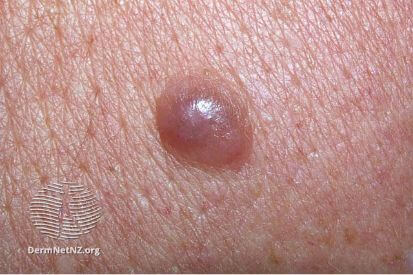
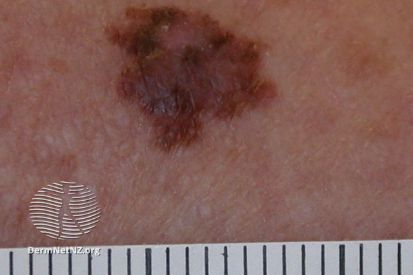
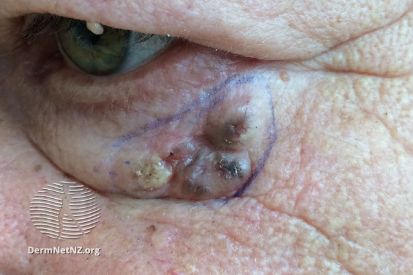
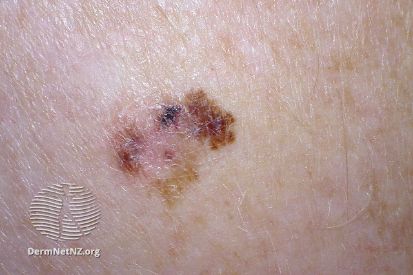
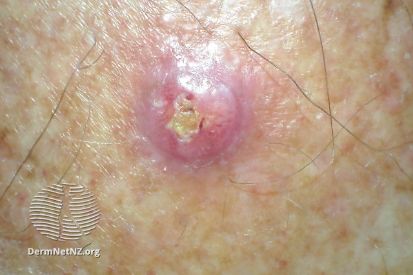
How to Spot Skin Cancer
Skin cancer can present in various ways, which is why it’s important to stay alert to any changes in your skin. Recognizing subtle or persistent skin changes early can significantly impact diagnosis and treatment outcomes for skin cancer. If you notice anything unusual, it’s best to consult a dermatologist at Pinnacle Dermatology for a professional evaluation.
Common skin cancer symptoms include:
- Changes in the size, shape, or color of existing moles
- New growths or spots that look different from other areas of your skin
- Sores or lesions that don’t heal, or heal and return
- Bumps that are pearly, waxy, or have a translucent appearance
- Rough, scaly patches or crusted areas on the skin
What Causes Skin Cancer?
As mentioned above, skin cancer often begins with damage to the DNA of skin cells, most commonly from ultraviolet radiation. Over time, this damage can lead to abnormal cell growth and cancer development.
At Pinnacle Dermatology, we understand the many factors contributing to skin cancer risk. We are committed to helping you identify and manage those risks through expert care, personalized prevention strategies, and routine skin exams.
Common skin cancer causes include:
- Excessive UV exposure from the sun or artificial sources like tanning beds
- Frequent sunburns, especially during childhood or adolescence
- Fair skin, light hair, and light-colored eyes (lower melanin levels mean less natural protection)
- A history of skin cancer or precancerous lesions
- Weakened immune system, due to illness or medications
- Exposure to toxic substances, such as arsenic
- Genetic factors or a family history of skin cancer
- Chronic skin inflammation or injuries in the same area over time
How to Prevent Skin Cancer
While skin cancer is one of the most common cancers, it’s also one of the most preventable. Every day presents an opportunity to protect your skin and reduce your risk through simple, consistent habits. From daily sun safety to staying aware of changes in your skin, skin cancer prevention starts with awareness—and ends with action.
At Pinnacle Dermatology, we empower our patients with the knowledge and care they need to take charge of their skin health. Through daily protection, self-checks, and annual total body skin exams, you can stay one step ahead and safeguard your health for the long term.
Daily Protection Habits
Daily protection starts with healthy skin habits. Use a broad-spectrum sunscreen with SPF 30 or higher every day, even on cloudy days, and reapply regularly. Wear protective clothing like wide-brimmed hats and long sleeves, and seek shade during peak sun hours (10 a.m. to 4 p.m.) to minimize UV exposure.
Importance of Regular Skin Self-Exams
Perform a monthly skin cancer self-exam to check for new moles or changes in existing spots. Use a mirror to examine all areas of your body, including hard-to-see places. If you notice anything suspicious, such as changes in shape, color, or size, schedule a visit with a dermatologist immediately.
Annual Total Body Skin Exams at Pinnacle Dermatology
An annual total body skin exam with a Pinnacle Dermatology provider offers a thorough, professional evaluation of your skin. During the exam, we check for any abnormal moles, lesions, or changes. Early detection dramatically improves treatment success, making these yearly exams vital to your skin health routine.
FAQs: Skin Cancer
Skin cancer originates in the skin cells and typically develops on areas exposed to the sun, though it can also appear on skin not exposed to sunlight. The three main types of skin cancer are basal cell carcinoma, squamous cell carcinoma, and melanoma. Basal cell carcinoma and squamous cell carcinoma are more common and generally have higher cure rates, while melanoma is less common but more aggressive.
The leading risk factor for skin cancer is exposure to ultraviolet (UV) radiation from the sun or tanning beds. Additional risk factors include fair skin, a history of sunburns, a family history of skin cancer, a weakened immune system, and exposure to certain environmental factors like arsenic.
The signs of skin cancer can vary depending on the type. Common indicators include changes in the size, shape, color, or texture of a mole or spot on the skin. Itching, tenderness, or bleeding may also occur. It's important to stay vigilant and seek medical advice if you notice any unusual changes on your skin.
Treatment for skin cancer depends on the type, size, and location of the cancer, as well as the patient's overall health. Common treatment options include surgical removal of the cancerous tissue, radiation therapy, and, in some cases, chemotherapy or immunotherapy.
You should apply sunscreen every day, even on cloudy days and during the winter, UV rays can still penetrate the clouds and cause skin damage. Sunscreen needs time to be absorbed into the skin. We recommend applying it at least 15-30 minutes before going outdoors and reapplying every two hours.
A total body skin exam by a dermatologist is crucial for several reasons. Firstly, it serves as a proactive measure for the early detection of skin cancers, including melanoma, the deadliest form of skin cancer. Skin cancers are often highly treatable when identified at an early stage. A comprehensive examination allows the dermatologist to assess moles, birthmarks, and any unusual skin changes that may indicate potential issues.
From Our QualDerm Family of Providers: What to Expect at a Total Body Skin Exam
Skin Cancer Treatments
Receiving a skin cancer diagnosis can feel overwhelming, but treatment options today are highly effective, especially when the condition is caught early. At Pinnacle Dermatology, we provide personalized care plans tailored to your specific type, stage, and location of cancer. Whether your treatment involves non-surgical methods or advanced surgical techniques, our experienced providers are here to guide you every step of the way.
Non-Surgical Treatments
For certain types and early stages of skin cancer, non-surgical options can be effective. These may include topical medications, cryotherapy (freezing), or targeted therapies that destroy cancer cells without incisions. Your Pinnacle Dermatology provider will determine if a non-invasive approach is appropriate for your condition.
Surgical Treatments
Surgical treatments are often the most effective option for removing skin cancer, especially in more advanced or high-risk cases. Procedures may include excisional surgery or Mohs micrographic surgery, which precisely removes cancerous tissue while preserving healthy skin. Pinnacle Dermatology offers expert surgical care tailored to your needs and diagnosis.
Related Blog Posts

- Skin Cancer
- Skin Exams
It’s time to face the facts: skin cancer can develop in individuals of all skin colors, including those with darker skin tones.
Read More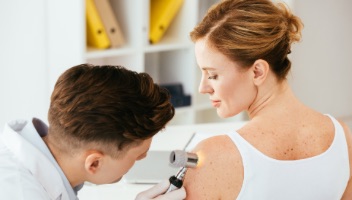
- Skin Cancer
- Skin Exams
In this blog, we’re covering what you need to know about five dangerous skin cancers, including basal cell carcinoma (BCC), squamous cell carcinoma (SCC), malignant melanoma, merkel cell carcinoma, and kaposi sarcoma.
Read More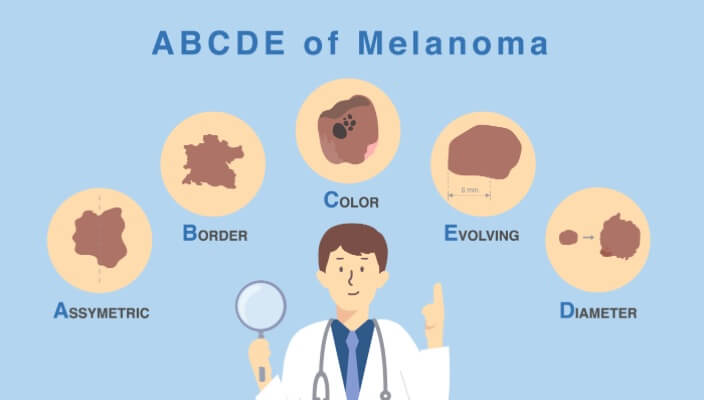
- Skin Cancer
- Skin Exams
Discover the ABCDEs of melanoma. Familiarize yourself with the five key indicators to aid in early detection and prompt medical attention for any suspicious moles or skin lesions.
Read MoreFeatured Products for Sun Protection

EltaMD UV Elements SPF 44 Tinted
EltaMD UV Elements is a 100% physical sunscreen in a tinted, moisturizing base. It is gentle for even the most sensitive skin types, including post-procedure skin. Its chemical-free actives, zinc oxide and titanium dioxide, provide safe but sure sun protection. These mineral-based UV filters work with ultra-hydrating hyaluronic acid to protect and hydrate the skin. UV Elements has a universal tint that beautifully enhances most skin tones for a more youthful appearance. 2 oz / 57 g

EltaMD UV Pure SPF 47
For those who want chemical-free active ingredients, EltaMD UV Pure is the ideal daily sunscreen. Great for children and adults, the gentle formula glides on wet or dry skin and rubs in quickly. UV Pure is formulated with purely physical active ingredients which are photostable. 4 oz / 114 g


